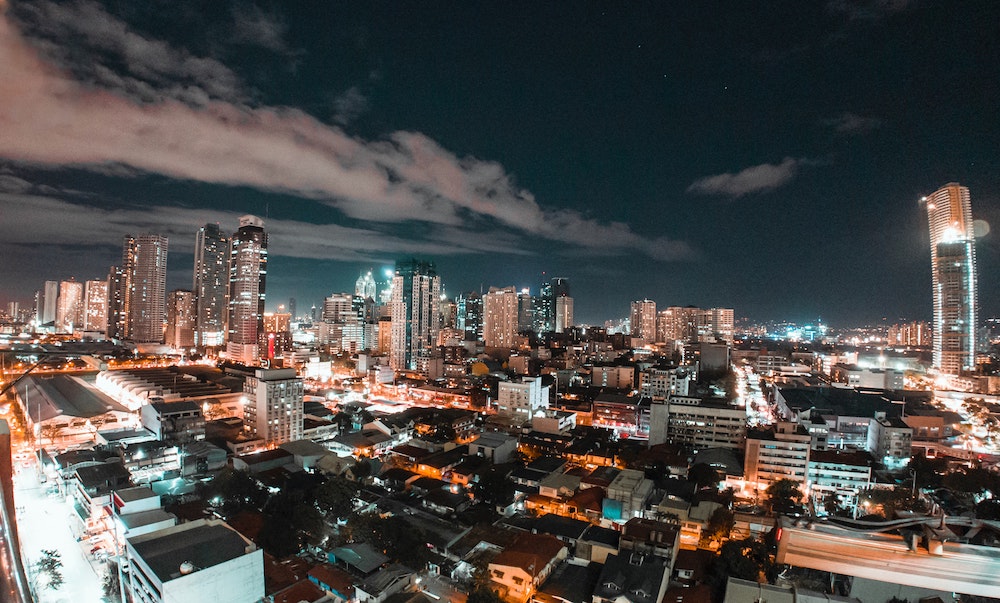
Manila, one of theworld's most densely populated cities, experiences water shortages. (Unsplash/Ramon Kagie)
The Catholic Bishops' Conference of the Philippines has welcomed a decision by the country's lawmakers to halt construction of a controversial dam project, which it says would adversely affect Indigenous people and the environment.
The Chinese-funded $254 million Kaliwa Dam project in Quezon province, south of the capital Manila, has been mired in controversy, ucanews.com reported.
Environmentalists claim it would involve the destruction of a 740-acre forest that is home to 126 plant and wildlife species.
Philippine bishops also had expressed concern in 2020 that the dam would force Indigenous groups like the Dumagat-Remontado from their ancestral lands.
Lawmakers halted construction June 9 pending an investigation into alleged corruption in securing government permits.
"The Kaliwa mega-dam project is against inclusive development. We are happy to learn of this decision by our lawmakers," the bishops' Commission on Social Action, Justice and Peace said in a June 10 statement.
Bishop José Colin Mendoza Bagaforo of Kidapawan, who heads the commission, added that the common good must be prioritized over business interests.
"Indigenous people, the community and the environment should not be sacrificed on the altar of development aggression that would only benefit the interests of big business," he told reporters.
He said lawmakers and the government had a duty to protect marginalized citizens including Indigenous communities.
"The state must look upon Indigenous people as the guardians of the country's remaining biodiversity with the right to protect their ancestral lands," Bagaforo said.
President Rodrigo Duterte has pushed for the project, calling it the "last resort" to stabilize Manila's water supply.
Advertisement
The suspension is the latest setback in the controversial Kaliwa dam project's long stop-and-start history.
With a population estimated at some 14 million people, metropolitan Manila is one of the world's most densely populated cities. The Philippine government insists that the project, which would provide 158 million gallons of water a day, is necessary to supplement the city's already-inadequate supply, which comes mainly from an aging dam and reservoir system on the Angat River.
First proposed in the late 1970s, plans for a dam on the Kaliwa River were shelved until the 1990s, then abandoned again because of economic and political instability. The project was revived more than a decade ago, then suspended, in part because of opposition from Indigenous Dumagat-Remontado people who would have been displaced by the reservoir.
Later, a Japanese proposal for a series of lower dams was scrapped in favor of the most recent plan for Chinese-financed construction of an initial 200-foot-high dam that would would be followed by several others.
An editorial posted in March 2020 on the website of the news service of the Catholic Bishops' Conference of the Philippines questioned the financing arrangement, which put up national territory as collateral for the loan and provided for any disputes to be settled in Chinese courts.
"By the looks of it, the Kaliwa Dam loan agreement, unduly favors Chinese interests over that of the Philippines," said the editorial, which also noted that the dam would submerge some 740 acres of forest in the Sierra Madre, "compromising the rich biodiversity of the mountain range and adversely affecting thousands of people downstream, including the indigenous Dumagat-Remontado" and four towns.
"This will have social and economic impact on the immediate localities and consequently on the whole country, thereby making this project not in the way of inclusive development," the editorial said.
Before the legislature voted to suspend the project, the House Committee on Indigenous Cultural Communities and Indigenous Peoples held hearings on the dam, investigating both the contract with China for construction of the dam and whether a process was carried out to ensure the free, prior and informed consent of Indigenous peoples in the area.
In a recent interview, Bishop Broderick Soncuaco Pabillo, apostolic administrator of the Manila Archdiocese, called for a "proper review" of the project.
"While the Earth is reeling from global warming, here we are still doing business-as-usual projects when international studies have shown big dams are not advisable because they are not reliable and are built at an exaggerated economic cost," he said in an interview on Radio Veritas, the archdiocesan station.






